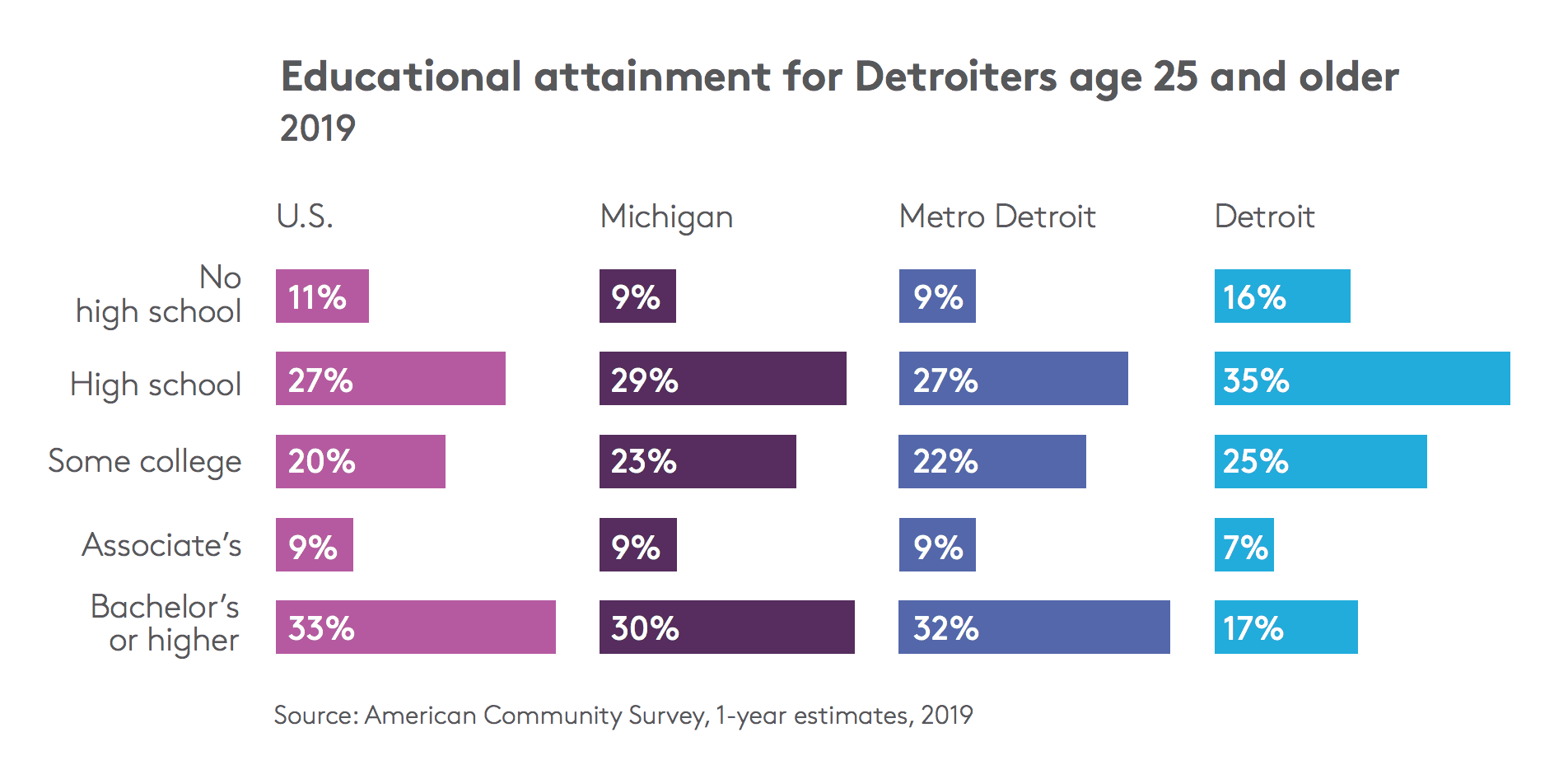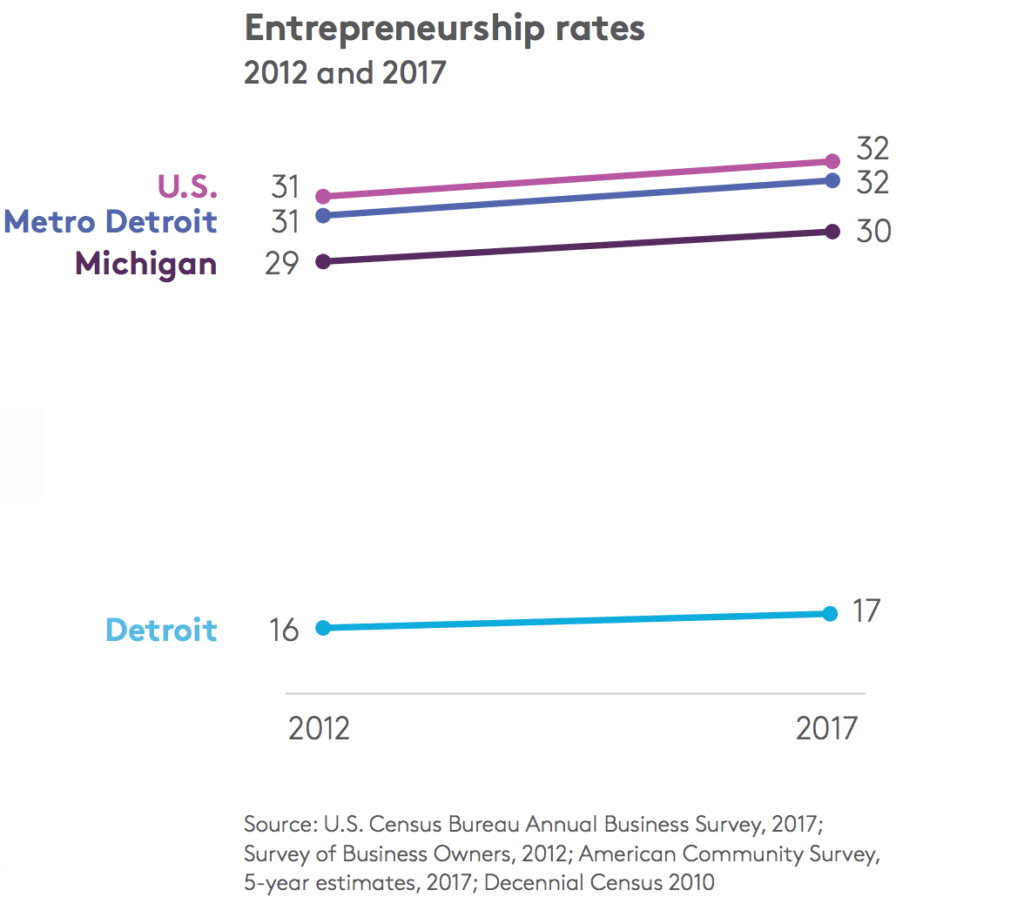Report on economic equity in Detroit underscores persistent disparities, provides recommendations for an economically equitable Detroit
May 21, 2021- Income and wealth building
- Access to quality employment
- Business and entrepreneurship
- Education
- Health
- Neighborhoods and housing
The report is the outcome of a yearlong engagement process with input from over 500 stakeholders. The data demonstrates the need for policy and resources to be structurally repositioned to create sustainable systemic change. Among the results, income inequality for Detroiters, along with barriers to growing wealth, are the result of disparities in education and employment.
Recommendations to create a path toward economic equity include reducing the educational attainment gap. Only 17% of Detroiters have a bachelor’s degree, compared to 32% of Metro Detroiters. In the Detroit Region, the median wage for a person with a four-year degree is more than $15 higher than for a person without a four-year degree.


Business and entrepreneurship metrics in the report include entrepreneurship rates per capita, average business size, and capital access for small businesses. Entrepreneurship rates in Detroit are half that of Metro Detroit, as measured by the number of privately held businesses with employees per 1,000 working-age residents. Access to capital differs for small businesses also, with Detroit making up about 9% of the region’s small businesses but accounting for only 6% of the value of the region’s small business loans.
Additional takeaways from the report include:
- Only 5% of Detroit’s residents live in a middle-class neighborhood, compared to 59% in the region.
- Median wages without a bachelor’s degree were $17.58 compared to those with a bachelor’s degree at $32.68.
- Only 17% of Detroit’s third graders are proficient in English language arts, compared to 43% across the region.
- Someone living in Detroit has a life expectancy of five years less than someone in the region.
- 62% of renters are housing cost burdened. Read the full report at detroitfuturecity.com.
Read the full report at detroitfuturecity.com.
